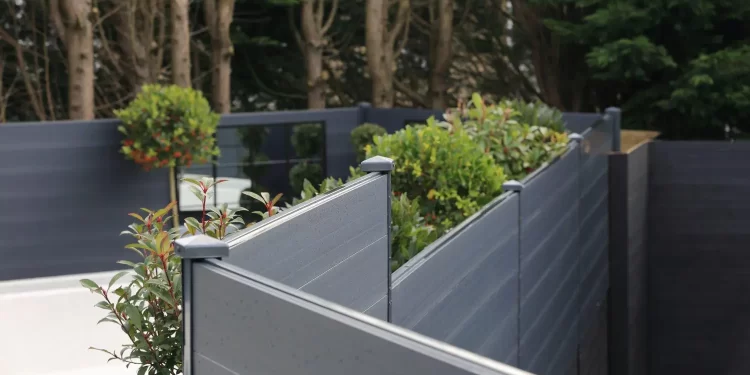Eco-Friendly Fencing Solutions in Leeds: Sustainable Choices for Your Home

In the quest for a greener planet, homeowners in Leeds are increasingly turning to eco-friendly solutions for their everyday needs, including fencing. As an essential part of any property, fences not only provide security and privacy but also contribute significantly to the aesthetic appeal of a home. However, traditional fencing materials and practices often come with environmental drawbacks. Fortunately, there are numerous sustainable choices available that allow you to maintain the beauty and functionality of your property while minimizing your ecological footprint.
Why Choose Eco-Friendly Fencing?
Before diving into the materials and practices, it’s important to understand why eco-friendly fencing is beneficial. Traditional fencing options like PVC and pressure-treated wood can have adverse environmental impacts. These materials often involve toxic chemicals, non-renewable resources, and processes that contribute to pollution and habitat destruction. In contrast, eco-friendly fencing options focus on sustainability, using renewable resources, recycled materials, and production methods that reduce environmental harm. By choosing eco-friendly fencing in Leeds homeowners can support local ecosystems, reduce waste, and contribute to a healthier planet.
Sustainable Fencing Materials
- Bamboo
- Benefits:Bamboo is one of the fastest-growing plants in the world, making it an exceptionally renewable resource. It regenerates quickly after harvesting without the need for replanting and requires minimal pesticides or fertilizers.
- Applications:Bamboo fencing can be used in a variety of styles, including panels, rolls, and screens. It provides a natural, rustic look that complements many garden designs.
- Reclaimed Wood
- Benefits:Using reclaimed wood helps reduce the demand for new lumber, preserving forests and reducing waste in landfills. It also requires less energy to process compared to new wood.
- Applications:Reclaimed wood can be sourced from old barns, factories, and warehouses. It can be used to create beautiful, weathered fencing that adds character and history to your property.
- Composite Fencing
- Benefits:Composite fencing is made from a mixture of recycled wood fibers and plastic. This blend creates a durable, low-maintenance product that resists rot, insects, and weathering without the need for chemical treatments.
- Applications:Composite fences come in a variety of colors and styles, mimicking the look of traditional wood without the associated maintenance and environmental impact.
- Recycled Metal
- Benefits:Fencing made from recycled metal, such as aluminum or steel, reduces the need for new raw materials and the energy-intensive processes of mining and refining. Metal fences are long-lasting and can be recycled again at the end of their life cycle.
- Applications:Metal fencing is available in various styles, including modern, sleek designs and more ornate, traditional options. It is ideal for both security and decorative purposes.
- Living Fences (Hedges)
- Benefits:Living fences, created from plants like privet, hawthorn, or holly, offer numerous environmental benefits. They provide habitats for wildlife, improve air quality, and can be grown sustainably without harsh chemicals.
- Applications:Living fences require regular maintenance to keep them dense and well-shaped but offer a natural, eco-friendly boundary that enhances the landscape’s biodiversity.
Sustainable Fencing Practices
- Local Sourcing
- Whenever possible, source materials locally to reduce the carbon footprint associated with transportation. Local materials support the local economy and are often better suited to the region’s climate and conditions.
- Eco-Friendly Treatments
- If using wood, opt for eco-friendly treatments that do not involve harmful chemicals. Natural oils, such as linseed or tung oil, can protect wood from moisture and pests without environmental toxicity.
- DIY and Upcycling
- Embrace the DIY spirit and upcycle materials you already have. Old doors, pallets, and other reclaimed items can be creatively repurposed into unique fencing solutions. This approach reduces waste and adds a personalized touch to your property.
- Low Impact Installation
- Minimize the environmental impact of your fencing installation by using manual tools rather than power tools when possible. Consider using biodegradable or recycled materials for post foundations and other structural elements.
- Maintenance
- Regular maintenance extends the life of your fence, reducing the need for replacements and repairs. Clean your fence with eco-friendly cleaners and inspect it regularly for damage or wear.
Local Providers and Initiatives in Leeds
Leeds is home to a growing number of suppliers and contractors specializing in eco-friendly fencing solutions. Local businesses often offer personalized advice and services tailored to the specific needs of Leeds homeowners. Some notable providers include:
- Leeds Fencing& Decking Supplies
- They offer a range of sustainable materials, including composite fencing and treated timber from responsibly managed forests.
- Eco Fencing Leeds
- Specializing in recycled and reclaimed materials, Eco Fencing Leeds provides environmentally conscious options for both residential and commercial properties.
- Leeds Wood Recycling
- This community enterprise focuses on reclaiming and repurposing wood, reducing waste, and providing affordable, sustainable wood products.
Conclusion
Adopting eco-friendly fencing solutions is a significant step towards creating a sustainable home environment. By choosing materials like bamboo, reclaimed wood, composite fencing, recycled metal, and living fences, Leeds homeowners can enjoy durable, attractive boundaries without compromising the health of the planet. Furthermore, embracing sustainable practices, such as local sourcing, eco-friendly treatments, and upcycling, ensures that your fencing project has minimal environmental impact.
Incorporating these eco-friendly fencing options and practices into your home improvement plans not only benefits the environment but also enhances the beauty and value of your property. With the support of local suppliers and contractors, making sustainable choices for your fencing needs in Leeds has never been easier or more rewarding.






